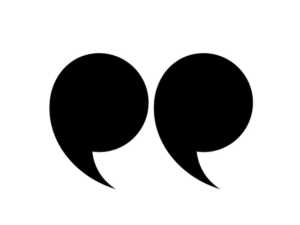Final Expense Benefits' Top Picks for Life Insurance Riders
Easy Navigation

Life Insurance Riders.
An additional benefit one may include with their policy –
riders exist to further customize your policy to best fit your specific needs.
How necessary are they though? Is there ever a situation where you absolutely need one?
It depends… But first, let’s define what we’re talking about here.
What Is A Life Insurance Rider?

Life Insurance Riders, also known as endorsements, are customizable features or “add ons” one may include within their life insurance policy.
An Insurance Rider varies wildly in use, from allowing users to access their death benefit early, to pausing the required monthly premium on your policy – their usefulness can not be understated.
In most cases, an Insurance Rider means paying an additional fee on top of your monthly premium, but it’s important to note how low this increase is. This is especially the case when the insurance rider does not require additional underwriting, but it ultimately depends on your provider and the options available.
In rare instances the Insurance Rider may be included without any additional fees – this is usually the case in a membership program or under another special circumstance.
Life Insurance Riders:
- Life Insurance Riders exist separate from your current policy and only serve to supplement your plan.
- Life Insurance Riders are important to consider as they can further personalize your policy to best fit your specific needs.
- An insurance rider may also be the glue one may need to fill in the gaps of their policy, as they are highly customizable and in most cases very cheap relative to the additional coverage they give you.
- An Insurance Rider is also the main avenue one may utilize when attempting to convert a term policy into permanent whole life insurance coverage.

Sometimes riders are the only thing allowing you to continue using your policy, especially in examples when a waiver of premium rider is needed, or in cases where illness unexpectedly occurs and you need to access your death benefit early.
We urge you to consider your options when qualifying for coverage, as most of the time you’re unable to add riders after the initial coverage application.
What Policies Support an Insurance Rider?

Generally, permanent coverage is where riders shine, but riders may also be used in different kinds of policies such as when converting term coverage into permanent whole life insurance.
As riders directly mirror the policy itself, they usually are encouraged within a permanent whole life insurance policy as it makes sense in the eyes of the insurer. Generally the main Life Insurance Riders associated with a term policy are those that allow users to convert term coverage into permanent coverage.
Why Are Life Insurance Riders Important?
Permanent life insurance policies are exactly that, permanent.
It’s important to prepare yourself for unexpected circumstances as much as you can. Your life could change at a moment’s notice, for good or for bad. Riders are an extension of your current policy, acting as a support system for said policy. As a result of the policy remaining in force for the remainder of your lifetime, the rider will as well.
Unexpected events can and will occur in your lifetime.
Certain Life Insurance Riders grant policy holders long-term comfort in knowing that regardless of what happens they’re still covered. Life Insurance Riders also allow for greater flexibility in the case of these unforeseen events.
They can benefit both the beneficiaries as well as the policyholder.
Not only can Life Insurance Riders benefit your beneficiaries, but they also allow the policyholder to access these benefits as well. Life Insurance Riders come in many different forms and further increase your range of coverage.
When Would You Want an Insurance Rider?

If you foresee yourself needing to use the more relevant life insurance riders.
For example, a term conversion insurance rider is a very important rider to keep in mind, as it’s one of the only ways to convert your term policy into permanent coverage.
An inverse example would include any dependent based add-ons, such as a child life insurance rider. This wouldn’t be a particularly important rider to have, especially if you don’t have kids. You’d never get to utilize it and it would only serve to increase your monthly premium.
Essentially, the more relevant add-ons can sometimes be crucial when navigating your insurance policy, whereas the less relevant riders are useless to those that do not associate with them. Very high highs, and Very low lows.
Why Wouldn’t You Want an Insurance Rider For Your Life Insurance Policy?

If you don’t see yourself using it, or if the extra cost will be too much.
Most of the time, an insurance rider incurs an additional cost to your monthly premium.
Although this usually isn’t enough to make a significant difference, they can still be noticeable.
If you genuinely don’t see yourself using it, then there’s no reason to add it to your policy.
Keep in mind though, life insurance riders accompany permanent life insurance policies for the most part, and these last for the remainder of your lifetime so long as premiums are paid.
Since they last for your entire life, It’s important to think ahead when utilizing an insurance rider.
Top 8 Life Insurance Riders To Look Out For
Term Conversion Rider
Term policies may offer incredibly lucrative rates for the applicable, but they are unfortunately not permanent. Term policies all share one common aspect, in that they expire at the end of their term period. One of the most common and important riders, a Term Conversion Rider allows policy holders to convert their expiring coverage into a permanent, whole life insurance policy. This is done by using your current policies’ underwriting requirements, preventing you from having to take another medical exam/questionnaire. Essentially, this conversion is done without an additional application process, potentially saving you time and money. In most cases, a term conversion rider applies to the policy at the end of your term, or at a certain age – whichever comes first. It’s important to note that this is one of the only options to make this kind of conversion.
2.
Guaranteed Insurability Rider
Or also known as a guaranteed purchase rider, a Guaranteed Insurability Rider allows the policy holder to add additional coverage to their current policy, but only to a certain age and only at predetermined times, such as every year. Keep in mind, when purchasing additional coverage the rate you receive is contingent on your current underwriting requirements vs the ones that were in place when first applying for the policy. A Guaranteed Insurability Rider is very useful as it allows you to get more coverage without having to reapply for a new policy.
3.
Accelerated Death Benefit Rider
Or also known as a living benefits rider, an accelerated death benefit rider allows policy holders access to a portion of their death benefit while still alive. You must purchase an accelerated death benefit rider in advance and qualify for certain health criteria to utilize this rider to its full potential. Some examples of said health criteria are chronic illnesses, long-term-care situations, or a terminal illness. It’s important to note that an accelerated death benefit rider is available on not only permanent policies, but term policies as well.
4.
Waiver Of Premium Rider
A waiver of premium rider allows the policy holder to pause the payment of premiums so long as the requirements are met. The requirements to pause your monthly premium generally involve you becoming disabled or unable to work. The coverage is still instituted during the pause period, the premiums are simply paused as you are unable to provide them. Keep in mind, different carriers define disability in different ways.
5.
Return-Of-Premium Rider
This one is fairly simple, as a Return-Of-Premium rider refunds all premiums paid to the policyholder if the policy holder outlives the term stated on your life insurance policy. This is especially important the younger you are when qualifying for coverage.
6.
Long-Term Care Rider
Similar to an accelerated death benefit insurance rider, a long-term care rider allows policy holders to take money from the death benefit to fund any long-term care needs, such as housing or medical bills. This insurance rider can be notably expensive as a result of the incurred risk buying this may imply.
7.
Accidental Death Rider
An interesting rider, potentially tripling your death benefit in certain cases. An accidental death rider pays out a multiplier of the death benefit specified in your policy, usually 2 or 3x. An accidental death rider ‘s multiplier only applies if you die in a qualifying accident, specified by the insurance provider at time of signup. These qualifying accidents will never include self-imposed risk, such as death that occurs from skydiving or drinking and driving.
8.
AD&D (Accidental Death and Dismemberment)
An accidental death and dismemberment insurance rider pays an additional benefit to those that deal with accidental death, dismemberment, or permanent injury, such as blindness. As with an accidental death rider, there are stipulations to how the death/dismemberment occurs and what they classify as such.
Summary
- Life Insurance Riders are customizable features that you may add to your life insurance policy for an increased monthly premium (or sometimes free of cost).
- Insurance Riders are hit or miss, in that if you don’t need them they are almost useless, but if you do need them they can sometimes be crucial, such as in the case of a term conversion rider.
- Riders must be added to your coverage at the time of qualification, so it’s important to think ahead.
Final Thoughts

Frequently Asked Questions
Is An Insurance Rider Necessary?
Not necessarily, as there are so many forms of an insurance rider. They are necessary in some cases, such as with a term conversion rider that allows you to convert your term policy into permanent coverage.
How Much Does An Insurance Rider Cost?
It depends on the insurance rider chosen. They all differ in price, and different carriers may offer the same insurance rider at a different cost.
What Does Insurance Rider Mean?
An Insurance Rider is a customizable add-on one may include in their life insurance policy to further customize their coverage to fit their needs.
Can You Add A Rider To An Existing Life Insurance Policy?
You need a current life insurance policy to even hold a rider, but sometimes the insurance rider must be added to the policy during the qualification process.
Which Insurance Rider Pays A Death Benefit?
There are a few that would pay a death benefit, but some notable examples include an accidental death benefit insurance rider, an accidental death and dismember insurance rider, or something like a return of benefit insurance rider.
What Is A Death Rider?
When a life insurance policy is for an individual but that specific policy holder isn’t the one paying for the policy, then this policy applies to them. A death rider states that in the event of death of the payer, the policy holder is exempt from premiums for the remainder of that paying period.
